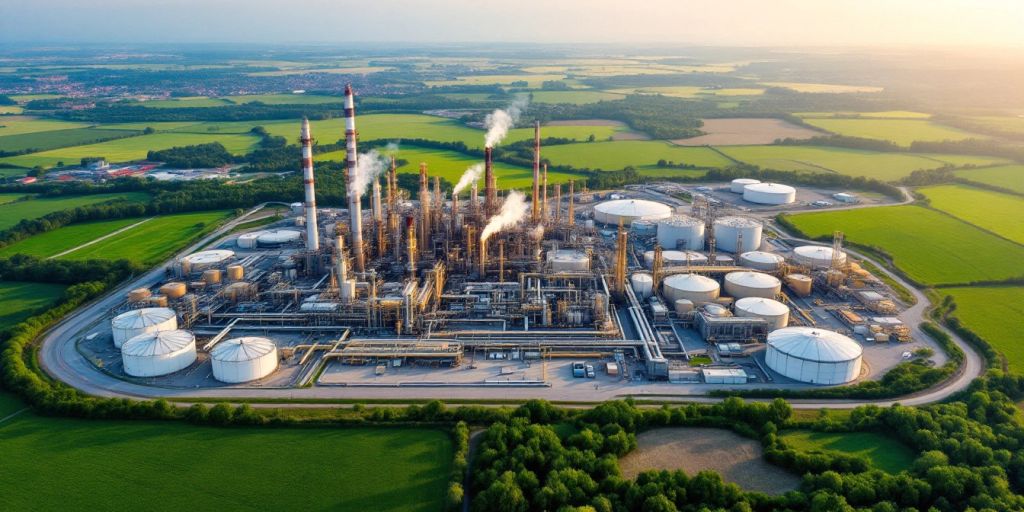The Bulgarian government has recently expressed its lack of knowledge regarding a potential deal involving the sale of the Burgas oil refinery, a significant asset in the Balkans. Reports indicate that Russian oil company Lukoil is preparing to sell this refinery to a consortium led by Qatari and British interests, raising concerns about the implications for Bulgaria’s energy market.
Key Takeaways
- Bulgarian officials were unaware of Lukoil’s plans to sell the Burgas refinery.
- The deal reportedly involves a Qatari-British consortium.
- The Bulgarian government holds a "golden share" in the refinery, allowing it to block the sale if deemed necessary.
- Analysts suggest the deal may involve laundering Russian assets.
Background of the Deal
The Burgas oil refinery, owned by Lukoil, is the largest in the Balkans and plays a crucial role in the region’s fuel supply. The Financial Times reported that Lukoil intends to sell this strategic asset to a consortium that includes Oryx Global, controlled by Qatari businessman Ghanim Bin Saad Al Saad, and the London-based commodities trading house DL Hudson. This move requires approval from Russian President Vladimir Putin, as indicated in a letter sent to his office.
Government Response
On Wednesday, Bulgarian caretaker Energy Minister Vladimir Malinov stated that he learned about the potential deal through media reports rather than direct communication from Lukoil or its management. He emphasized that the government had not received any official information regarding the sale.
Malinov announced that the government would conduct a thorough analysis of how the sale could impact Bulgaria’s fuel market, but this would only occur after receiving formal notification from Lukoil.
Legal Implications
The Bulgarian government possesses a "golden share" in the Burgas refinery, which grants it significant control over the asset. This means that the government can block the sale if it believes the transaction poses a threat to national security. Additionally, there are legal mechanisms in place that allow the state to temporarily seize the refinery if necessary.
Potential Candidates for Purchase
The letter to Putin also mentioned other potential buyers, including:
- Azerbaijan state energy company Socar
- Kazakh state energy group KazMunayGas
- Turkey’s oil company Opet
These companies are well-established players in the oil market, raising questions about Lukoil’s choice to engage with a consortium that may not have the same level of expertise in oil production.
Analyst Insights
Martin Vladimirov, a prominent energy analyst at the Center for the Study of Democracy, expressed concerns that the deal might be a means of laundering Russian assets. He noted that the transaction appears to favor financial funds rather than traditional oil market players, which could indicate a shift in strategy by Lukoil.
Vladimirov also mentioned that it is unlikely the deal will be finalized by the end of the year, given the regulatory mechanisms available to the Bulgarian authorities for review. This situation highlights the complexities surrounding the sale of strategic assets and the potential geopolitical implications for Bulgaria and the broader Balkan region.
As the situation develops, the Bulgarian government will need to navigate the intricacies of international energy markets while safeguarding national interests.






